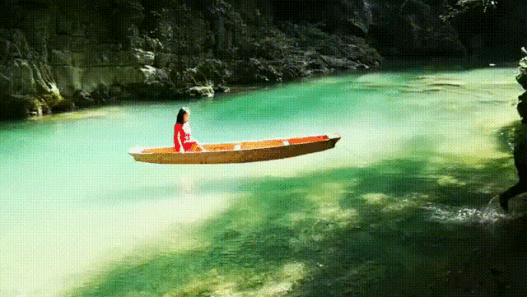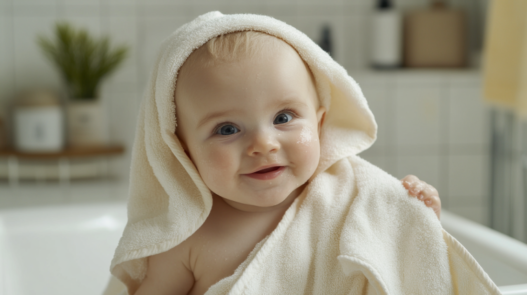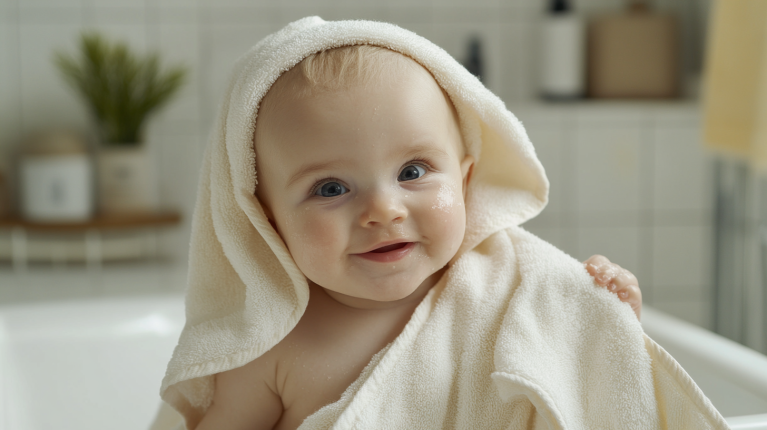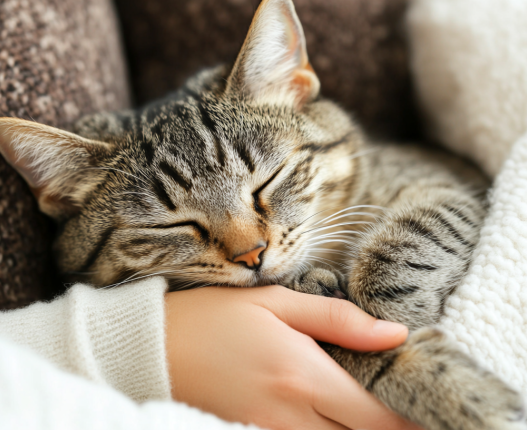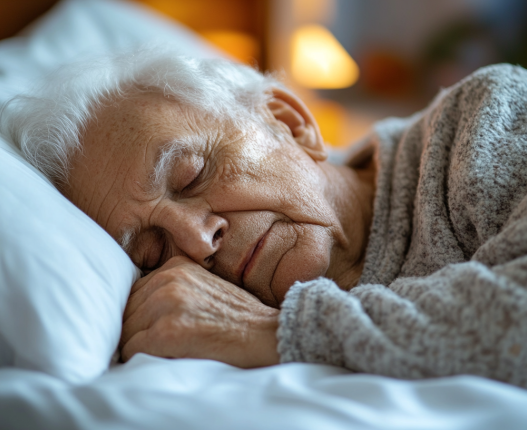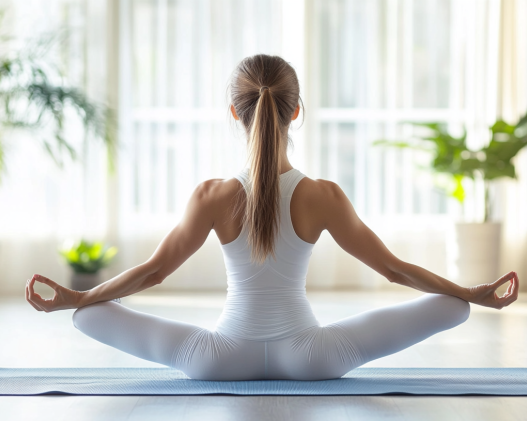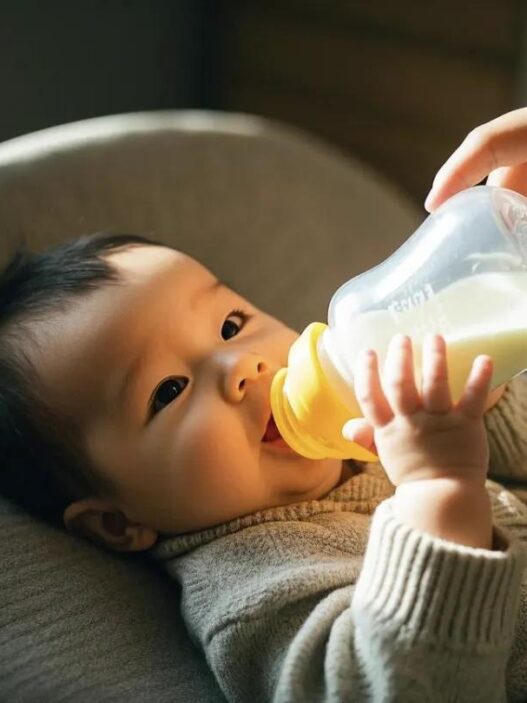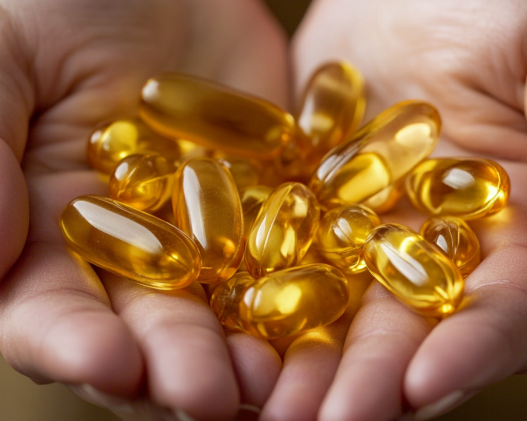When you become a parent, cleanliness becomes a top priority. You want to keep your home clean and safe so your child stays healthy. However, there are plenty of seemingly “clean” habits that could actually be making things worse!
Today, we’re diving into five common parenting habits that may be doing more harm than good. Check them out and see if you’re guilty of any of these “counterproductive” habits!
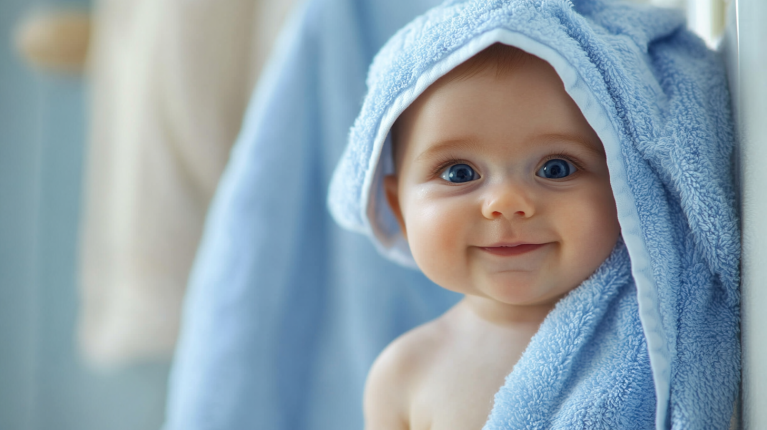
1. Hanging Your Baby’s Towels and Bath Towels to Dry in the Bathroom
After you use your baby’s towel or bath towel, you might toss it in the bathroom to air dry, especially in dry climates where you think it will dry quickly and conveniently. But did you know this could make the towels dirtier?
We all love soft, fluffy towels made from pure cotton, right? But if you zoom in on the towel fabric, you’ll see that it’s made up of loops, which can easily trap bacteria from the air. These towels become ideal breeding grounds for bacteria, especially in the bathroom, where there are plenty of germs.

Bathrooms are filled with bacteria, and flushing the toilet can spread viruses and germs in the air. Dampness can encourage the growth of mold too. Worse, towels from adults and babies are often hung together, which means the bacteria on adult towels can transfer to the baby’s towels. One dirty towel can make them all dirty.
So, if your baby’s towel is hung in a bathroom, in a damp condition, the risk of bacteria multiplying increases.
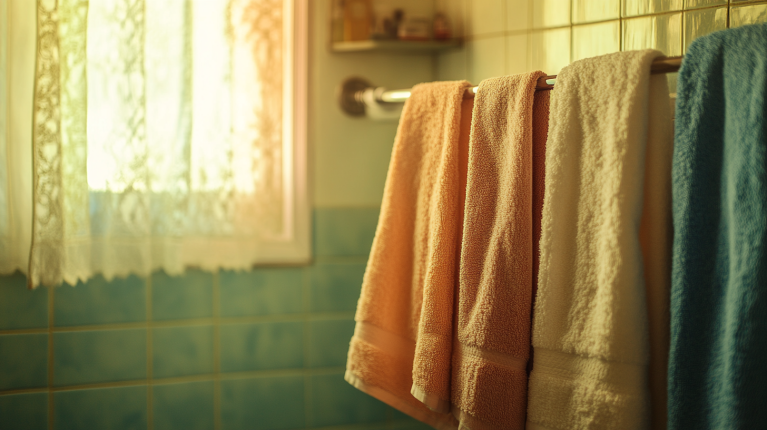
What you can do:
After using your baby’s towel, make sure it’s kept dry. You can either dry it with a dryer or let it sunbathe outside. Be sure to wash adult towels every 2-3 days and replace them every 3-6 months.
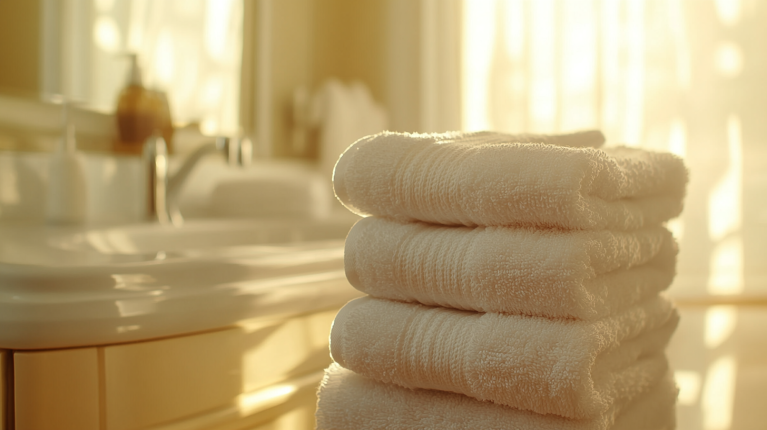
2. Using a Basin of Water to Wash Your Baby’s Bottom
At first glance, using a basin of water to wash your baby’s bottom may seem sanitary. However, this is one habit that actually promotes the spread of bacteria.
When washing your baby’s bottom, the water can become contaminated after coming into contact with feces. This poses a risk of bacterial infection, especially if you continue to use that contaminated water. The anus, full of folds, is often not perfectly clean, so some fecal residue remains, and when you reuse the water, bacteria and viruses from the feces get reintroduced.
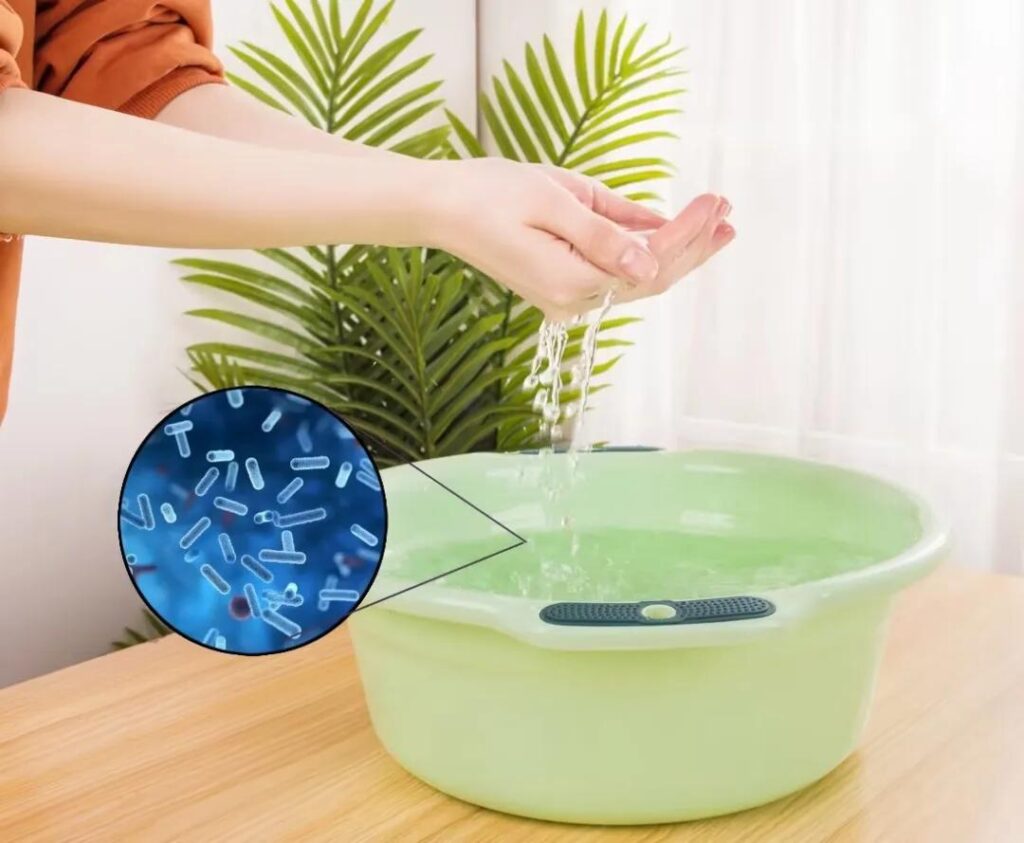
Moreover, the basin used repeatedly without proper cleaning can accumulate bacteria. If not dried properly, the bacteria grow even faster, making the basin an unhygienic environment for your baby’s skin.
What you can do:
Use running water when washing your baby’s bottom. If you must use a basin, never place used wipes or your baby’s bottom back into it. Always clean the basin after each use.
3. Using Restaurant Napkins to Wipe Your Baby’s Mouth
When eating out with your baby, you’ve probably used a restaurant napkin to clean their hands and face after a messy meal. But did you know that many restaurant napkins are not as clean as you think?
Some restaurants use low-quality napkins that are essentially toilet paper, or even worse, substandard “hygiene paper.” These napkins don’t meet hygiene standards and may contain harmful chemicals, including whitening agents that can pose a health risk.
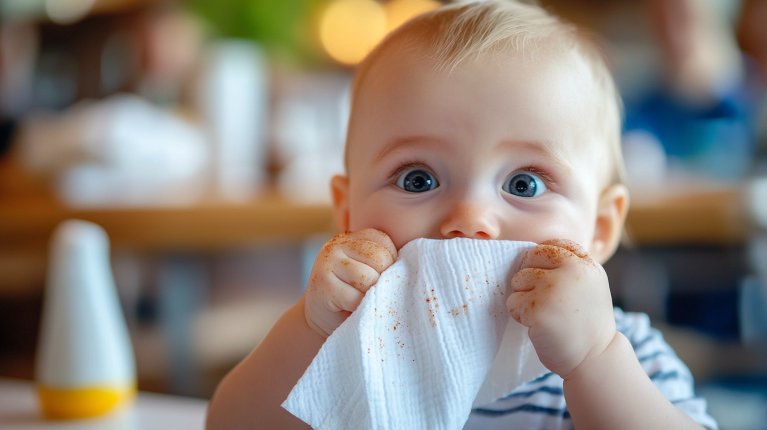
There’s a huge difference between “napkins” and “toilet paper.” Napkins used in restaurants are made from clean materials, and they are held to a much higher hygiene standard. For example, restaurant napkins must have a bacterial count of less than 200 cfu/g, whereas toilet paper (used for personal hygiene) is allowed up to 600 cfu/g!
What you can do:
Check if the napkins in the restaurant meet hygiene standards and avoid using those that are not labeled. Consider bringing your own napkins for your baby.
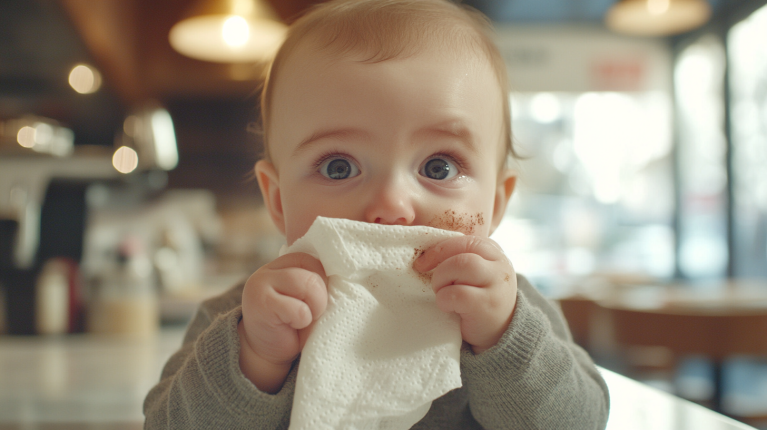
4. Using Public Restroom Hand Soap for Your Baby
Washing your hands after using the bathroom is an essential hygiene habit. However, public restroom hand soaps may contain more germs than you think.
Many public restrooms use large refillable dispensers, which are rarely cleaned and are often exposed to bacteria. Even worse, some establishments dilute hand soap with water, which accelerates bacterial growth.
A study found that hand soap in public places, such as shopping malls and airports, sometimes has bacteria levels 600 times above the safety limit!
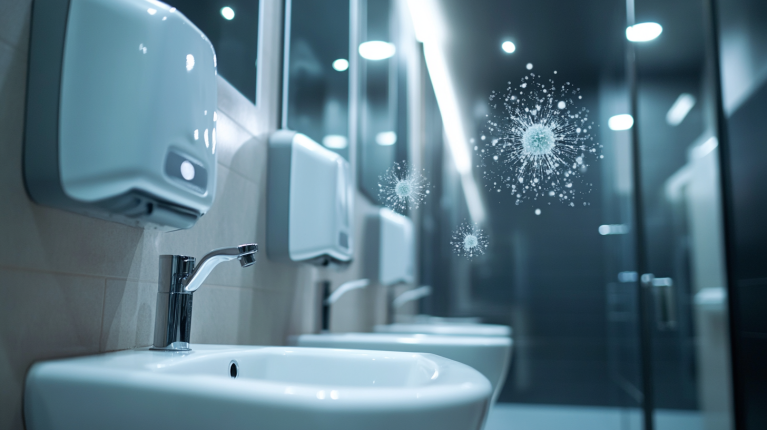
What you can do:
Carry your own hand soap when out and about, or simply wash your hands under running water for 40 seconds, which can effectively clean your hands without using potentially contaminated soap.
5. Using Hand Dryers in Public Restrooms to Dry Your Baby’s Hands
After washing your hands in a public restroom, you may use the hand dryer to quickly dry your baby’s hands. However, this could be making things worse.
Hand dryers work by pulling air from the surrounding environment and blowing it onto your hands. This means the air they pull in comes from the bathroom itself, where bacteria are abundant.
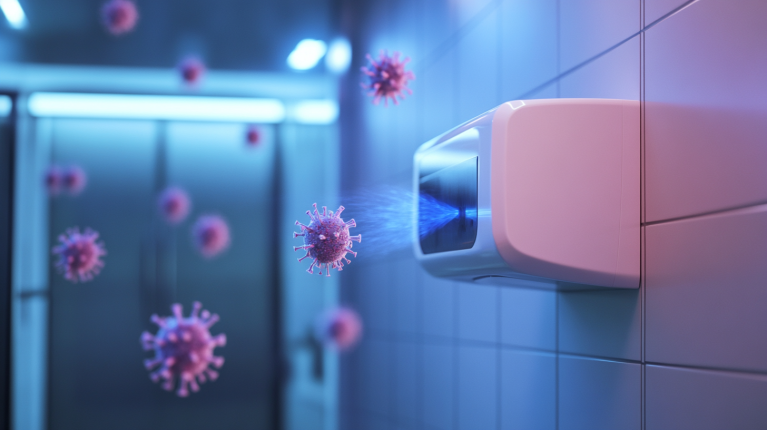
Studies have shown that when a hand dryer is on, the number of bacteria on your hands can increase significantly. In one experiment, bacteria colonies grew 18 to 60 times more on exposed petri dishes after using a hand dryer.
What you can do:
Avoid using public hand dryers, especially for your baby. Instead, carry a clean towel or use paper towels to dry your hands and your child’s hands.






